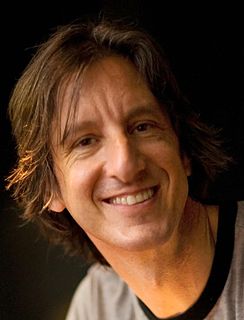A Quote by Greg Mortenson
I decided in '96 to dedicate my life to mostly promoting literacy and education for girls in rural Pakistan and Afghanistan.
Related Quotes
It is my vision that we all will dedicate the next decade to achieve universal literacy and education for all children, especially for girls. More than 145 million of the world's children are deprived of education due to poverty, exploitation, slavery, gender discrimination, religious extremism, and corrupt governments. May Three Cups of Tea be a catalyst to bring the gift of literacy to each of those children who deserves a chance to go to school.
Pakistan is alarmed by the rising Indian influence in Afghanistan, and fears that an Afghanistan cleansed of the Taliban would be an Indian client state, thus sandwiching Pakistan between two hostile countries. The paranoia of Pakistan about India's supposed dark machinations should never be underestimated.
In Afghanistan, there have been a lot of teachers assassinated, schools are being blown up, girls are harassed and in some cases, attacked on their way to school. Even if the girls are able to get an education, they can dream big, they can think about how they want to become a member of parliament because they are now women members of parliament in Afghanistan, nobody is really sure how long everything is going to last.
Literacy is a bridge from misery to hope. It is a tool for daily life in modern society. It is a bulwark against poverty, and a building block of development... For everyone, everywhere, literacy is, along with education in general, a basic human right.... Literacy is, finally, the road to human progress and the means through which every man, woman and child can realize his or her full potential.
Some Pakistanis fought for the Taliban. Pakistani extremist groups provided infrastructural support to Al Qaeda. There was a coming and going of Al Qaeda militants and leaders between Afghanistan and Pakistan for several years. All that has really happened is that Al Qaeda has escaped from Afghanistan come into Pakistan, got in touch with their contacts and friends in these extremist groups, which then provided them with safe houses, cars, and not just in the border areas but also in the cities. Rooting out Al Qaeda in Pakistan now is where the main battle is being fought.


































